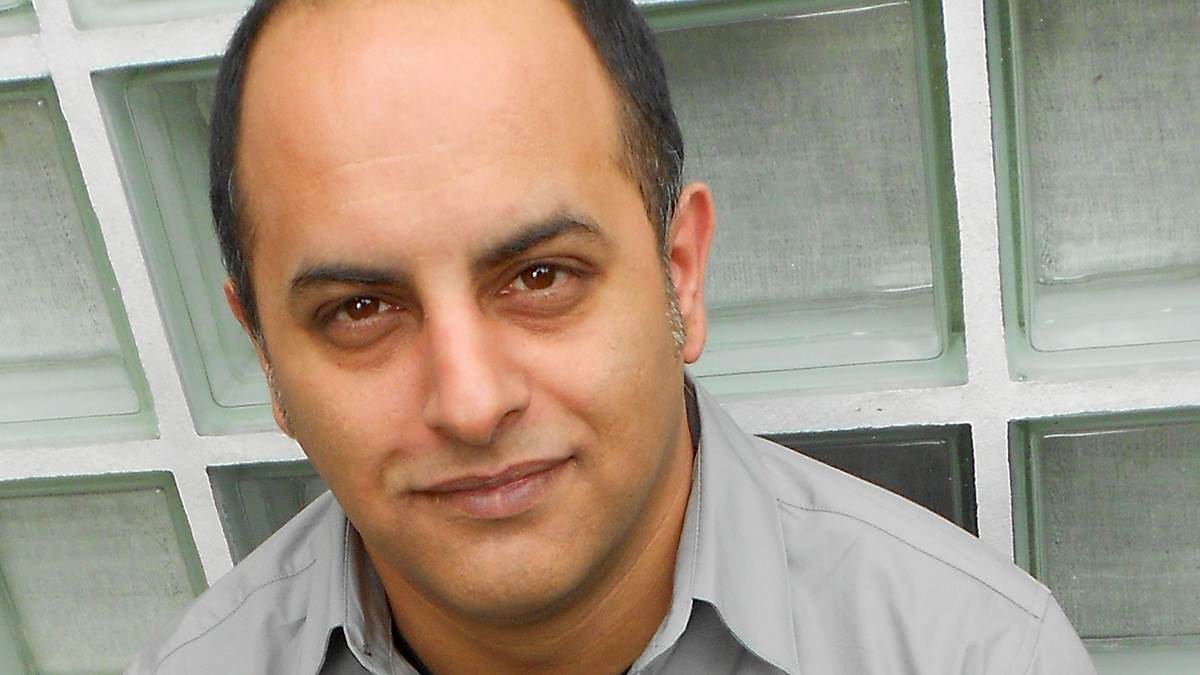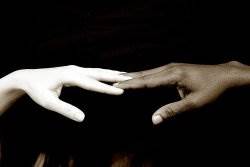Children's author Bali Rai on race and racism
Published on: 12 February 2012 Author: Bali Rai
The critically acclaimed writer of books such as Rani & Sukh, The Last Taboo and Killing Honour Bali Rai became our sixth Writer in Residence back in 2012. In this blog Bali looked at writing about race and racism.

Race and racism are topics that come up frequently during my school visits. I have also written about them often. Recently BBC Radio Four asked me to contribute to their Four Thought show and I decided to expand on my school talks so that I could get my ideas across to a wider audience.
I'm not the first person to suggest that we place too much importance on race, and I won't be the last. But, it's such an important topic that I believe it deserves to be debated as widely as possible.
You see, coming from multicultural Leicester, I've never really understood why many people are so obsessed by the colour of their skin. I've never related to pride in skin colour or even nationality for that matter. Why should we be proud of something that is not only an accident of birth, it's also an artificial creation in the first place? Surely, the end of race as an issue could lead to the end of racism and prejudice. Couldn't it?
Let me take the first point, that race is simply an accidental quirk to begin with. None of us choose our skin colour or the country in which we're born. Because we don't select those things, how can we be proud of them? It's not like there's a soft drinks machine in the womb, where you can pay a pound and choose what flavour to be. I didn't decide that being brown-skinned and English would be great – it just happened. In my opinion, saying that you are proud of your skin colour or nationality is like picking some random building and claiming to be proud of that too. Why? You didn't build it.

Then there's the whole concept of racial differences. There aren't any. That's not an opinion - it is a scientific fact.
In the same way that we know Earth is round, we know that there is only one race, the human race. Former US President Bill Clinton's prized Human Genome Project proved it (look it up). There was also a brilliant documentary about our shared human ancestors from Dr Alice Roberts, which you can buy as a book and DVD – well worth searching out – that showed the same. So, if there are no genetic racial differences, why do we even have racism? The answer lies in society, and in the way we construct 'race'. The answer is that 'race' is as artificial as plastic flowers. It has been created to separate humans and, in some minds, to discriminate between them. It is a myth that we are taught.
See more fantastic books from Bali Rai
If you take a black baby, a white baby, and a baby of oriental descent, place them in a playpen and give them toys, they will not fight with each other over skin colour. That is because they do not know what skin colour is and they don't care. However, fast-forward ten years and all three of those human beings will be aware that they have different skin tones. Why does that happen? Would preventing such awareness create a better world? I believe it would. My nephew Jai was told by a former classmate that he wouldn't play with him because Jai is 'brown'. This was in infant school. Someone taught that little white boy to dislike other people because of their race – he wasn't born that way. Somewhere in most of our childhoods, we too learnt about racial difference in one way or another. Most of us didn't become racists but we were still taught something that is a myth. We grow out of Santa Claus and fairies (most of us), so why can't we grow out of racial awareness too? If we can teach racism, surely we can un-teach it too.
Obviously this is all an ideal, not a reality. I'm neither silly enough nor naïve enough to think that racism isn't a problem.
Race, in our modern world, is an issue. I understand why people who have been oppressed because of their skin colour often use it as a means of asserting their self-worth. As I said, I write about race and all that surrounds it and will continue to do so. Racism and prejudice of any nature are too important to ignore or take lightly.
What I'm talking about is an aspiration, a dream – and we should all have dreams. Just imagine what the world would be like if the first thing we saw when someone walked into the room was a human being, a brother or sister. Not a race, a nationality, a gender or anything else – just someone like us. One of my heroes, Bob Marley, sang, 'Until the colour of a man's skin is of no more significance than the colour of his eyes, everywhere is war.' It is something with which I agree completely. I hoped that my Four Thought lecture would help to open up a debate, to get people thinking and asking questions. I hope that this blog has achieved the same.






Add a comment